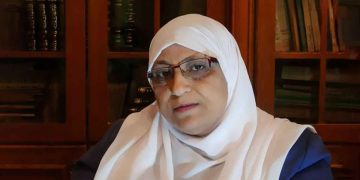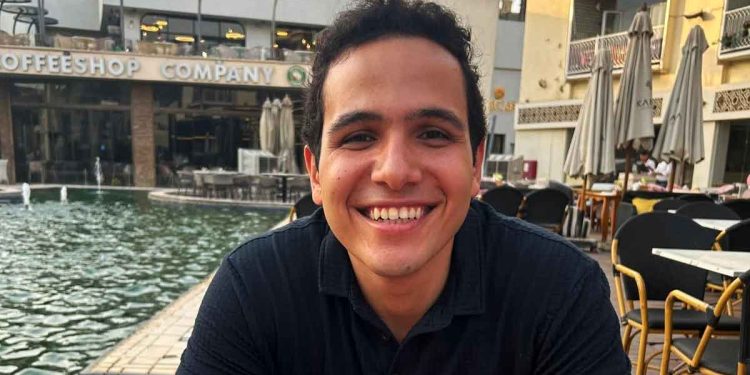Egyptian student Hossam Mahmoud, a second-year undergraduate at the Faculty of Mass Communication at Cairo University, now faces the prospect of losing his academic year, almost two months after his expulsion was issued. His only “offence” was serving as the spokesperson for the Egyptian Steadfastness Flotilla aiming to break the siege on Gaza.
According to Hossam’s account, he discovered the expulsion order purely by coincidence on 29 September, on the grounds that he had allegedly failed to complete the required hours to sit the midterm exams despite having taken those exams normally on 15 and 16 September, and despite his results being published on the 27th with no remarks or indication of any irregularity.
Hossam told the media that he had received no prior notice of any issue related to his attendance record or academic standing, casting doubt on the very basis on which the decision was taken.
Although he initially received informal assurances from the student affairs office that an administrative error was likely and could be corrected, he was later blindsided by the faculty council’s decision to uphold the expulsion. He lodged an appeal on 30 September.
According to what was relayed to him later, the faculty administration recommended in a mid-October meeting that he be reinstated “to safeguard his future”, but that recommendation has yet to materialise into action, as Cairo University has not taken a definitive decision.
At the end of October, Hossam received a phone call from a man who identified himself as an official from the university administration and informed him that the reinstatement procedures had been completed. But when Hossam went to the faculty, he found no evidence of this; staff told him once again that the matter remained pending pending approval from the university’s central administration.
With the midterm period now concluded, between 9 and 20 November, the student risks losing the entire semester, which would in turn cost him the chance to choose his major next year, a prerequisite for graduation from the Faculty of Mass Communication.
To prevent further harm, Hossam’s lawyer issued an official notice to the university president and the faculty administration, urging them to expedite the reinstatement and to form a special examination committee that would allow the student to sit the midterms he was unable to take through no fault of his own.
The case reveals a deeper problem: the absence of clarity in the mechanisms through which academic decisions, especially those that fundamentally shape a student’s future, are taken. When an expulsion is issued without prior notice or a clear and swift appeals process, a student becomes trapped in an administrative void entirely beyond his control, while consequences with potentially years-long impact accumulate.
Concerns deepen further when such decisions coincide with a student’s public activity such as Hossam’s appearance as spokesperson for the pro-Gaza Steadfastness Flotilla; an activity that should never be, directly or indirectly, grounds for denying him his right to continue his education.
This case underscores the need to ensure that a student’s academic standing is never influenced by external contexts or by legitimate civic engagement, including public or media participation in solidarity initiatives such as the Steadfastness Flotilla. Protecting the independence of academic life requires guaranteeing that no student fears that their activism or public stance might affect their studies or determine their professional future.


























